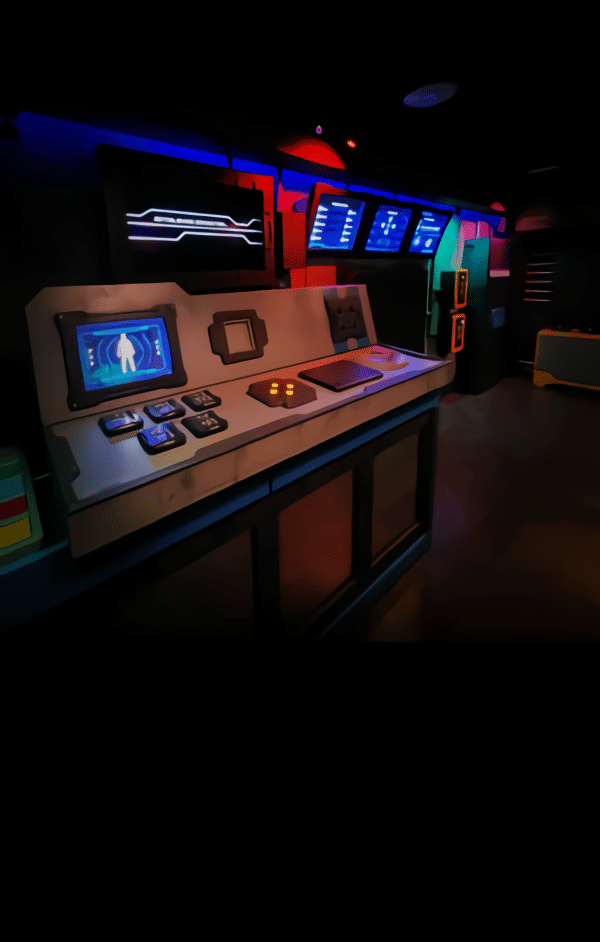What skills are needed to complete an escape room NYC game?
Escape rooms have become a popular form of entertainment, combining problem-solving, teamwork, and critical thinking in an immersive environment. In New York City (Midtown), there are several thrilling escape room experiences, including End of Days A, End of Days B, Hydeout, and Carbon: 3708. Each of these games presents unique challenges that test participants’ mental agility and collaborative skills.
To successfully complete an escape room NYC game, players need to develop a specific set of skills. This article will explore the essential abilities required to navigate these interactive puzzle adventures and discuss why these games are an excellent choice for anyone looking for an exciting and challenging activity.
Critical Thinking and Problem-Solving
One of the most crucial skills needed for an escape room is critical thinking. These games present a variety of puzzles, riddles, and hidden clues that require logical reasoning and analytical skills to solve.
-
Pattern Recognition – Many puzzles rely on recognizing patterns, sequences, or coded messages.
-
Logical Deduction – Players must analyze information and use logical reasoning to determine the correct course of action.
-
Lateral Thinking – Some clues require thinking outside the box and making creative connections between different elements.
Having strong problem-solving abilities ensures that participants can work through challenges efficiently and avoid getting stuck on a single puzzle for too long.
Teamwork and Communication
Escape rooms are designed for groups, making teamwork a fundamental skill. Effective communication and cooperation among team members can mean the difference between success and failure.
-
Delegation – Assigning tasks based on each player’s strengths allows for more efficient problem-solving.
-
Active Listening – Players must carefully listen to their teammates to share insights and prevent miscommunication.
-
Collaboration – Combining different perspectives and working together improves the chances of solving puzzles quickly.
A team that communicates well will be able to find clues faster, solve problems more efficiently, and ultimately escape the room before time runs out.
Attention to Detail
Escape rooms contain a multitude of small clues that can be easily overlooked. Developing a keen eye for detail can significantly improve a team’s chances of success.
-
Observational Skills – Players need to scan their surroundings carefully to spot hidden objects or subtle hints.
-
Memory Retention – Remembering previously discovered clues and connecting them to new information is essential.
-
Noticing Discrepancies – Spotting inconsistencies in patterns or finding things that seem out of place can lead to crucial discoveries.
Teams that take a meticulous approach and check every corner of the room are more likely to uncover the necessary clues to complete the game.
Time Management and Decision-Making
Every escape room has a time limit, typically 60 minutes, which means efficient time management is crucial. Players must make quick decisions and allocate their time wisely.
-
Prioritization – Focusing on the most pressing puzzles and not getting stuck on a single challenge is key.
-
Quick Thinking – Making fast but informed decisions ensures steady progress.
-
Managing the Clock – Keeping an eye on the remaining time helps teams stay on track and adjust their strategy as needed.
Teams that effectively manage their time will have a much higher chance of escaping before time runs out.
Adaptability and Staying Calm Under Pressure
Escape rooms often introduce unexpected twists or puzzles that require players to adapt quickly. Staying calm under pressure ensures that the team can think clearly and make rational decisions.
-
Handling Stress – The ticking clock can create tension, but keeping a cool head allows for better decision-making.
-
Flexibility – Being open to new ideas and alternative solutions can help solve tricky puzzles.
-
Resilience – If a strategy isn’t working, players must be willing to change their approach and try something new.
The best teams remain calm and collected even when faced with challenging puzzles, allowing them to work effectively under pressure.
Why Choose an Escape Room Experience in NYC?
Escape rooms offer a fun and immersive experience that combines excitement, problem-solving, and teamwork. Choosing an escape room in Midtown NYC provides several advantages:
-
Unique Themes – Games like End of Days A, End of Days B, Hydeout, and Carbon: 3708 offer exciting and immersive storylines.
-
Convenient Location – Midtown NYC is easily accessible, making it a great activity for locals and visitors alike.
-
Perfect for Groups – Whether it’s a corporate event, family outing, or team-building activity, escape rooms provide a memorable experience for all participants.
If you’re looking for a thrilling challenge that tests your mental agility and teamwork skills, an escape room in NYC is the perfect choice.
Conclusion
Completing an escape room NYC game requires a combination of skills, including critical thinking, teamwork, attention to detail, time management, and adaptability. These games offer a unique and immersive experience that is both challenging and entertaining. Whether you’re a first-time player or an experienced escape room enthusiast, developing these skills will significantly enhance your performance and increase your chances of success.
If you’re ready for an exciting adventure, gather your team and put your skills to the test in one of Midtown NYC’s top escape rooms!
Frequently Asked Questions
Q: What skills are needed to complete an escape room NYC game?
A: Successfully completing an escape room requires critical thinking, teamwork, attention to detail, time management, and adaptability. These skills help players solve puzzles efficiently and escape before time runs out.
Q: How long does an escape room game typically last?
A: Most escape rooms have a 60-minute time limit, but the total experience, including the introduction and debriefing, can take about 90 minutes.
Q: Are escape rooms suitable for beginners?
A: Yes! Many escape rooms offer varying difficulty levels, making them accessible to both beginners and experienced players. Teams can choose a game that matches their skill level.
Q: Can I play an escape room with a small group?
A: Absolutely! While some escape rooms require a minimum number of players, many games can be enjoyed with just two or three people. However, larger groups may have an advantage in solving puzzles faster.
Q: What should I do if I get stuck on a puzzle?
A: If you’re stuck, try rethinking your approach, communicating with your team, and looking at the puzzle from a different perspective. Most escape rooms also offer hints if needed.









